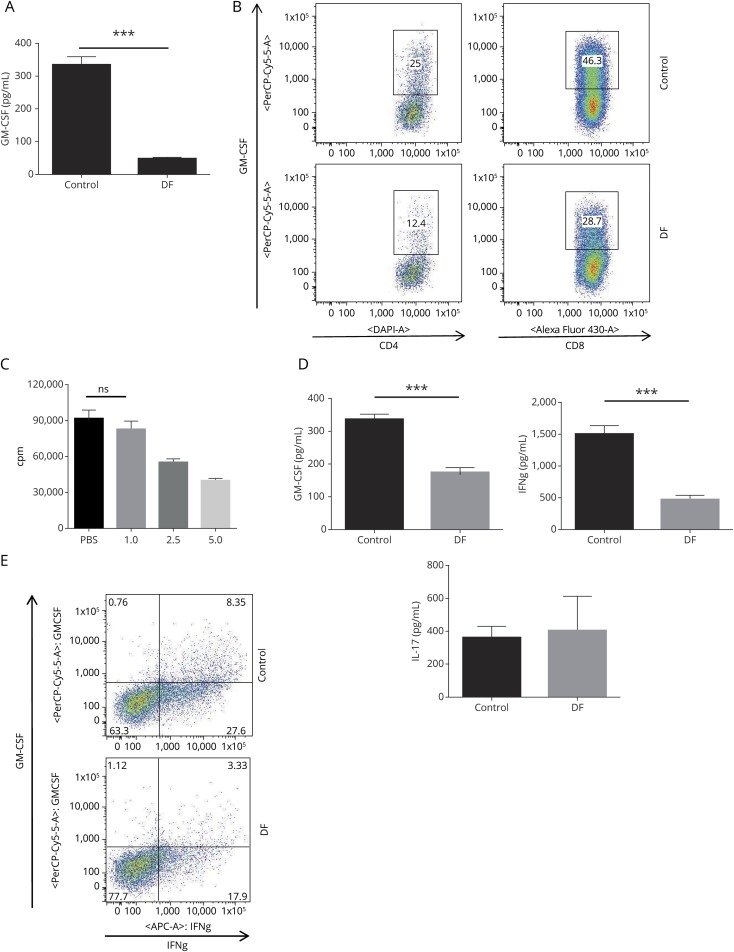Figure 1. DF decreases GM-CSF production and GM-CSF+Th1 cells in mouse splenocytes.
Splenocytes from wild-type (WT) mice were stimulated with 1 μg/mL of anti-CD3/28 antibody in the presence or absence of DF (1 μg/mL) for 72 hours. (A) GM-CSF levels in culture supernatants were determined by ELISA. Data are representative of 3 experiments (mean ± SEM; n = 4 replicates per group). (B) Cells were stimulated with ionomycin/PMA and GolgiPlug in the last 4 hours of culture. After intracellular staining for GM-CSF, flow cytometry analysis of gated CD4+ and CD8+ T cells showed that DF administration decreased GM-CSF production in both CD4+ and CD8+ T cells. (C) Proliferation assay on splenocytes treated with different DF doses. DF did not affect proliferation of splenocytes at a dosage of 1 μg/mL. (D) CD4+ T cells were purified from WT spleen cells and stimulated with anti-CD3/28 in the presence or absence of DF. IL-17, IFN-γ, and GM-CSF were measured in cell supernatants. DF decreased IFN-γ and GM-CSF, but not IL-17. (E) Flow cytometry analysis demonstrated that DF significantly reduced GM-CSF production in IFN-γ–producing CD4+ (Th1) cells. DF = dimethyl fumarate; GM-CSF = granulocyte macrophage colony-stimulating factor; IFN = interferon; IL = interleukin; PMA = phorbol 12-myristate 13-acetate; SEM = standard error of the mean. ***p < 0.001.

